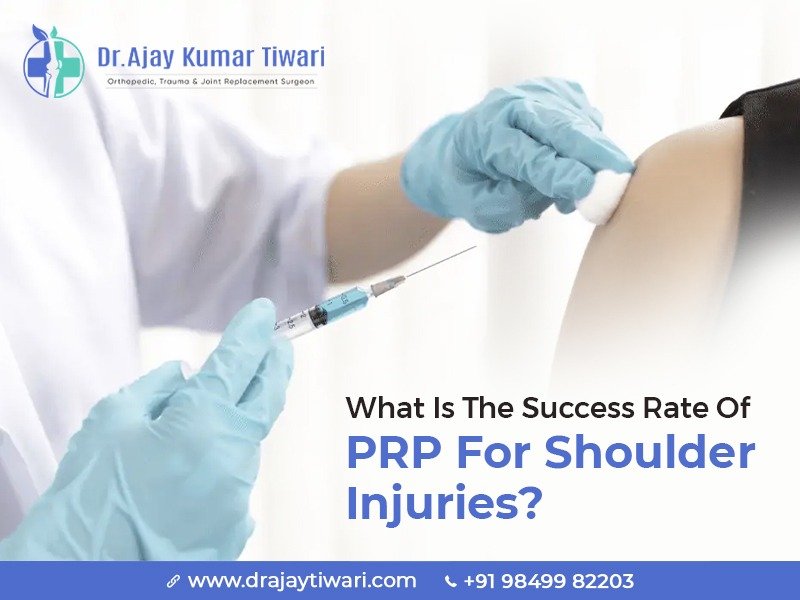
What is the success rate of PRP for shoulder injuries?
The shoulder joint is one of the most complex and highly flexible joints in our body. It is surrounded by a number of bones, muscles, tendons, and ligaments that together provide stability and free movement. Being the most used joint in the body and having a high extent of mobility, it is prone to several injuries and conditions.
Fortunately, the medical industry has developed a way to address almost every kind of shoulder problem. However, the type of treatment depends on the specific shoulder problem diagnosed, its severity, and the personal situation of the patient. The treatment options may include rest, physical therapy, anti-inflammatory medications, PRP therapy, and corticosteroid injections. In some cases, when conservative options can’t provide a solution, surgical intervention is the next best option to fix damaged structures or replace damaged joints.
PRP for shoulder injuries
Platelet-rich plasma (PRP) therapy is an advanced treatment option that works by triggering cell reproduction and boosting tissue regeneration when directly injected into the damaged area. PRP therapy works at the cellular level because it contains more growth factors collected from the patient’s own blood.
It is considered one of the best treatment options for several shoulder injuries and conditions, particularly when soft tissues like tendons and ligaments are damaged.
PRP can be used to treat the following shoulder problems:
PRP therapy is a good treatment option for rotator cuff tears, tendinitis, and tendinosis. Here, when PRP is injected into the damaged rotator cuff tendon, it boosts the natural healing processes of the body and promotes tissue repair.
PRP injections can be used to treat shoulder tendinopathies like supraspinatus tendinitis and biceps tendinitis. It helps to reduce discomfort and boost the healing process of the injured tendons.
PRP paired with a surgical repair is an excellent treatment option for glenoid labral tears in the shoulder, such as bankart lesions or SLAP tears. This is because PRP can boost the healing process during recovery.
PRP is one of the best treatment options for certain shoulder ligament injuries, especially those affecting the acromioclavicular (AC) joint. Injecting the PRP solution into the damaged ligaments might enhance the healing process.
Adhesive capsulitis, popularly known as frozen shoulder, is a painful condition. Though there are other treatment options, PRP has proven to be effective in managing pain and improving joint mobility for patients during rehabilitation.
Shoulder bursitis is another painful and uncomfortable condition caused when the bursa sac becomes inflamed. However, PRP injections are being used in many cases to reduce inflammation and pain because they are providing promising results.
The success rate of PRP injections
PRP has been proven to be quite successful in treating a variety of shoulder problems, including arthritis, sports injuries, and chronic pain. However, the success rate varies from one person to another because it depends on many factors like the condition being treated and the patient’s general health. PRP therapy is said to have a 90% success rate, according to some studies.
Remember, PRP may work effectively for some people and may not work for others, or it works even more effectively in combination with other treatments like physical therapy. So if you are looking for PRP therapy, consult an experienced doctor for the best resolution. Overall, the success rate of PRP is high and can offer long-term relief.
If you are suffering from any shoulder condition and want to know whether your condition can be treated with PRP therapy, consult Dr. Ajay Kumar Tiwari, one of the best orthopaedic surgeons in Hyderabad. He has more than 15 years of experience treating various joint problems, including the shoulder joint. He is one of the few experienced surgeons in Hyderabad who offers effective PRP therapy for many joint problems, especially the shoulder joints. Call +91 98499 82203 for an appointment booking.





